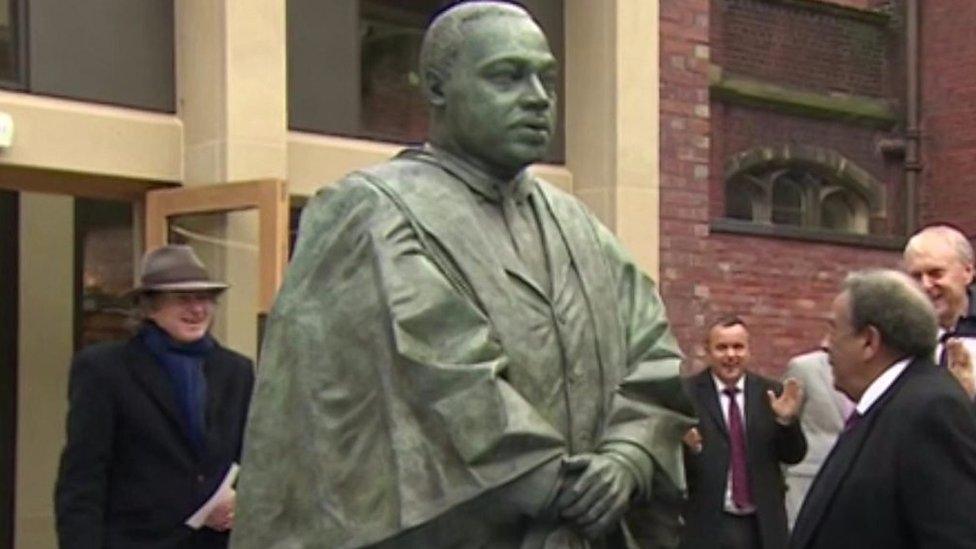Newcastle heritage trails champion city's diverse history
- Published
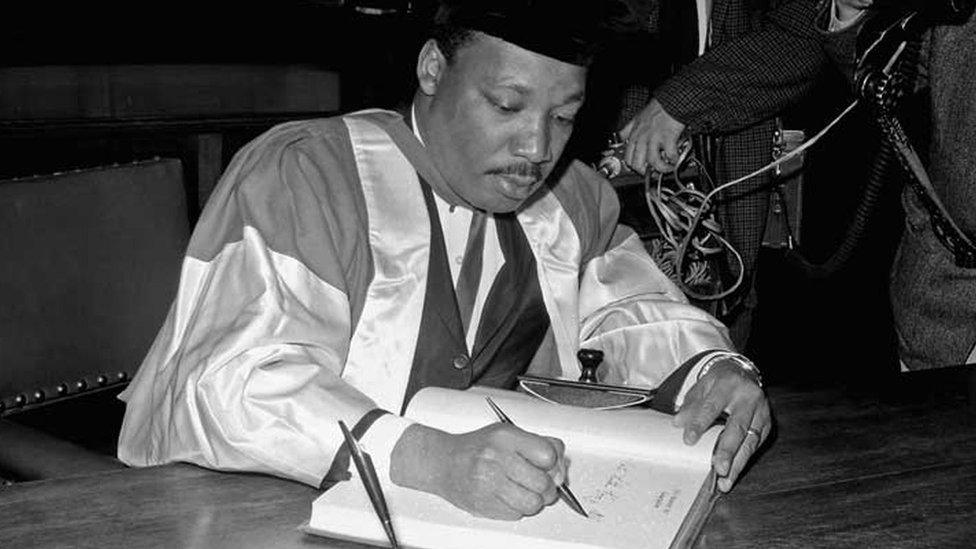
Dr King accepted his honorary degree from Newcastle University in November 1967
The influence of luminaries such as Martin Luther King Jr, Muhammad Ali and Ida B. Wells on Newcastle is celebrated in two new heritage walking trails.
The virtual maps, designed by Historic England, show how the city's diversity has been shaped since the 18th century.
The trails feature plaques, memorials and key landmarks such as City Hall and Brunswick Methodist Church.
The walks aim to "challenge racism" by focusing on the contribution of African people on the history of Newcastle.
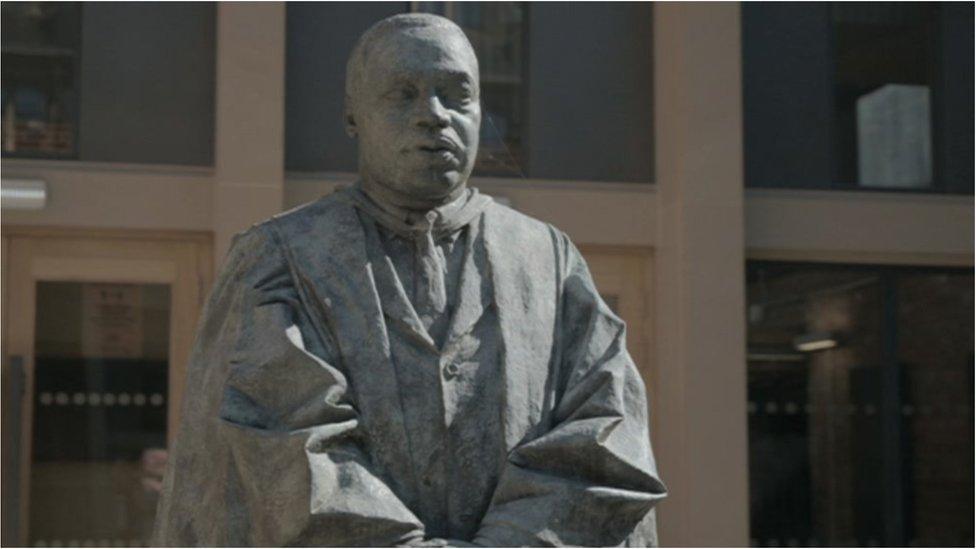
A bronze statue of Martin Luther King was unveiled by Newcastle University in 2017
Beverley Prevatt Goldstein, from the African Lives in Northern England Project, external, said: "These two Newcastle walks challenge racism by highlighting the achievements and resilience of the characters [they follow].
"The walks, accessible to both adults and children, online and live, reveal the rich and diverse history of Newcastle and the North East," she added.

Frederick Douglass went on to became a national leader of the Abolitionist movement after visiting Newcastle
Among those featured is social reform campaigner, and former plantation slave, Frederick Douglass, who is the only black person commemorated with a blue plaque in the city.
The plaque is located in Summerhill Square, where it marks the former home of the Richardson family, with whom Douglass lived in 1846 before returning to the US. where he launched an abolitionist newspaper.
Martin Luther King Jr's visit to Newcastle University to receive an Honorary degree, on 13 November 1967, is also featured.
During the ceremony he made a speech about the challenges of poverty, racism and war. Five months later King was shot dead in Memphis, USA.
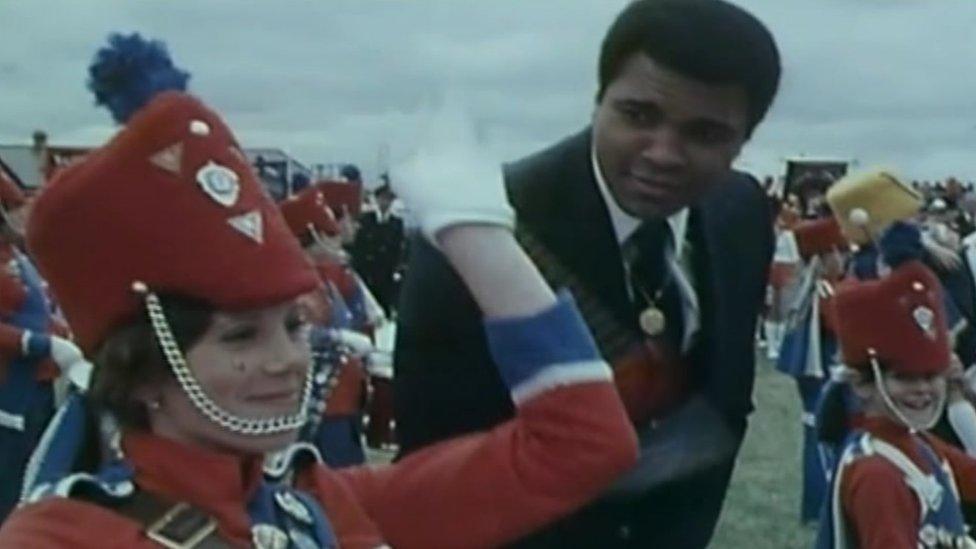
A 10-strong BBC crew followed the boxer during his visit to Tyneside, capturing special moments on film
Another famous face with links to the city is the late heavyweight boxing champion Muhammad Ali.
"I've never been so honoured," Ali remarked, after visiting Grainger Park Boys Club and being taken on a bus tour of South Shields during his visit to Tyneside in 1977.
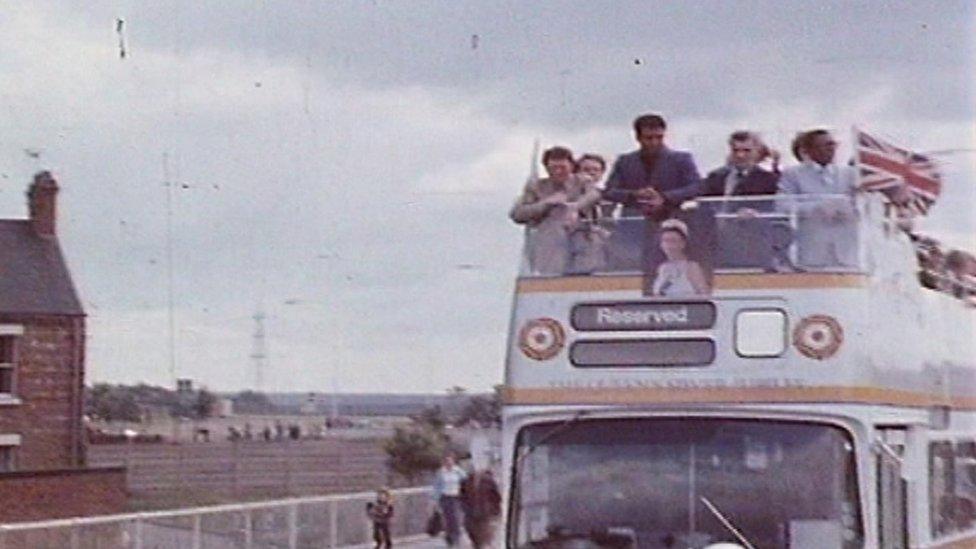
Ali spent four days in the region in 1977 promoting boys' boxing clubs
Less well-known personalities also feature, such as American campaigner Ida B. Wells, who spoke out against lynching in the USA at Brunswick Methodist Church in 1893 and 1894 .
And William Fifefield, who was born in St Kitts in the Caribbean in 1794 and became a staple of Newcastle life as a ferryman rowing people along the Tyne, after he married into a Northumberland farming family.
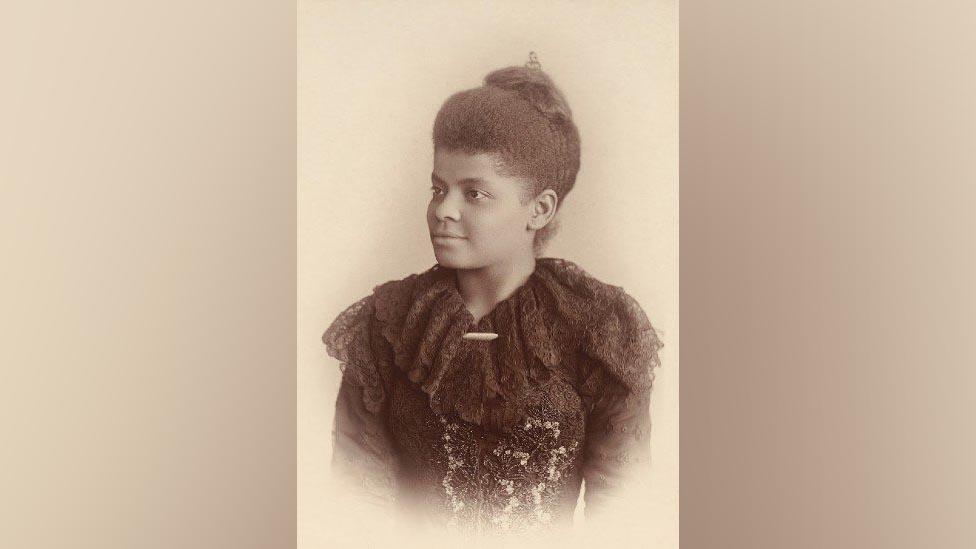
Ida B Wells shocked audiences in the 1890s with graphic stories of lynching in the USA
Vicki Angel, from Historic England, said: "I'm really pleased that children now have the opportunity to learn about the many people from Africa that visited, lived and worked in Newcastle.
"Some of these stories are not very well-known and it's important that children understand who these people were, as well as the contribution they made to our city," she added.

Brunswick Methodist Church itself was widely used for anti-slavery meetings in the 1820s and 1830s

Follow BBC North East & Cumbria on Facebook, external, X (formerly Twitter), , externaland Instagram, external. Send your story ideas to northeastandcumbria@bbc.co.uk, external.
Related topics
- Published13 October 2022

- Published23 June 2022
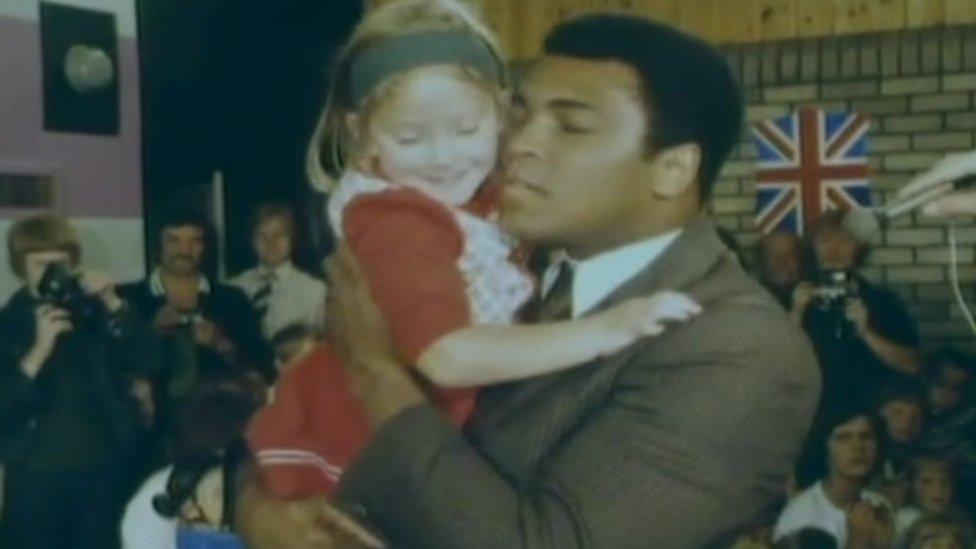
- Published16 January 2017
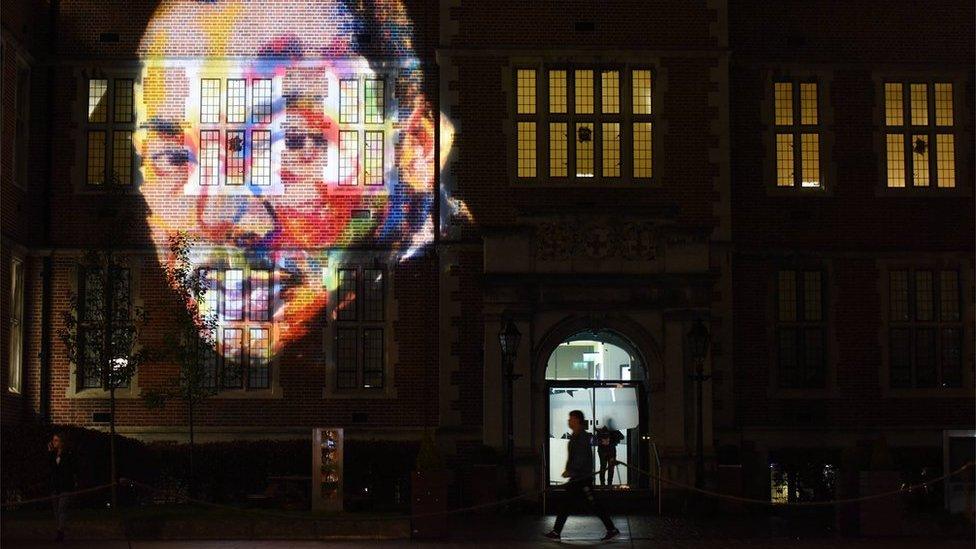
- Published13 November 2017
